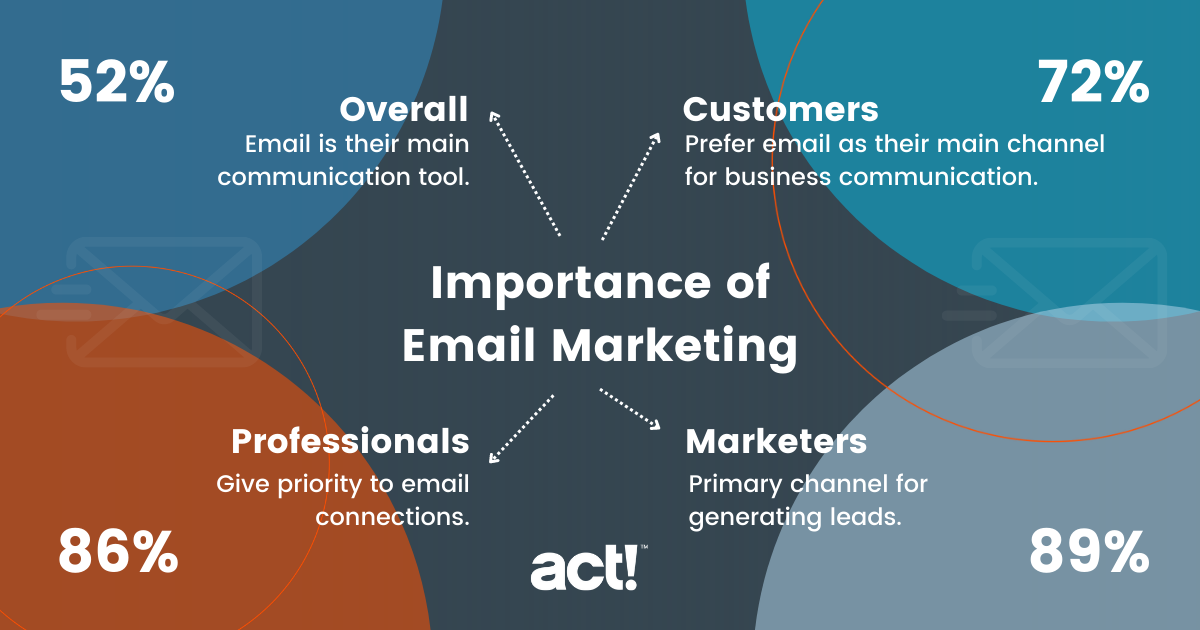
What digital marketing channel has an ROI of 3500%, is entirely under your control, and can be leveraged whenever you want to drive sales?
Email marketing, of course.
Unlike SEO or social media, your email marketing success doesn’t rely on automated algorithms or ever-changing content policies. It is among the most affordable digital marketing channels because once you convert a website visitor into an email subscriber, you have free, unlimited (mostly) access to your recipient’s inbox and the license to build a long-term relationship.
So, it’s not surprising, then, that 78 percent of marketers chose email as their most effective marketing channel in a recent survey.
But how do you measure the effectiveness of your email marketing and track its business impact? In this article, we’ll discuss email marketing key performance indicators (KPIs) and how tracking them can help you measure your email ROI.

Define your email marketing campaign goals
You can’t measure success unless you clearly know what you want to achieve. This is why the first step in measuring email marketing effectiveness is setting the right goals.
Here are a few possible goals for an email campaign.
Traffic generation
You can use an email campaign to drive traffic to a new blog post, promote an event, or create awareness. Businesses with large and engaged email lists rarely worry about website traffic generation because they know it’s just an email away.
Lead generation
If you’re running a webinar or launching a new offer, emailing your subscribers about it is one of the best ways to generate leads and quickly fill your pipeline.
User engagement
To grow a healthy email list, you must regularly engage with your target audience through value-packed emails that share free knowledge and help your subscribers solve problems. Sharing free email content establishes your authority, strengthens your relationship with your subscribers, and turns them into loyal followers, ultimately translating into sales and referrals.
Sales
Have a new product launch or annual Black Friday Sale? Nothing drives sales faster than a targeted email to an engaged list.
Feedback
Are you looking for audience insights or curious about how users feel about your brand? Send them an email survey to gather more feedback than you can handle.

Email marketing KPIs: 9 critical performance metrics to track
Depending on your goals, you can track various email marketing performance metrics to measure success. Here are the most commonly used email marketing metrics.
- Delivery rate: This is the percentage of emails successfully delivered to your subscribers. For example, if you send a campaign to 100 subscribers and it reaches 80 of them, the deliverability would be 80 percent.
- Bounce rate: The opposite of delivery rate, this measures the percentage of emails that couldn’t be delivered. You’ll want to ensure your distribution list is current if you experience a high bounce rate.
- Email open rate: This represents the percentage of subscribers who opened your emails in a specific campaign.
- Click-through rate (CTR): If your email has call-to-action links, CTR shows the percentage of subscribers who clicked it.
- Conversion rate: This metric represents the percentage of subscribers who took your desired action.
- Unsubscribe rate: This rate shows the percentage of subscribers who opt out of your email list after a campaign.
- Revenue per email: If you’re running a sales campaign, revenue per email shows the average sales you drive for every email recipient.
- List growth rate: This shows the rate at which your list grows in a specific period.
- Forward rate: The percentage of subscribers who forward your email to their contacts.
- Return on investment (ROI): Email ROI differs from revenue per email. It considers all the costs of an email campaign and measures its profitability and business results.
Every metric in this list gives valuable insights into your email campaign performance. But to drive business insights, you must view different KPIs together. For example, a high email open rate doesn’t tell you anything about your campaign’s impact unless you align it with CTR and conversion rates.

How to measure your email marketing success KPIs
Knowing the most critical email marketing KPIs isn’t enough unless you actively track and measure them to extract actionable business insights. Here’s how you can truly measure the success of your email campaigns.
Use an integrated CRM system
Conventional email marketing software allows you to manage subscribers, send email campaigns, and track key performance metrics. However, it rarely helps you measure the true impact of email marketing on your business performance.
This is where an integrated CRM and marketing automation system like Act! can be a game changer.
An all-in-one CRM and marketing automation platform tracks your customers’ engagement and records their interactions with your business, allowing you to see the full impact of your email campaigns. It also gives you tools like email automation and landing pages to run integrated marketing campaigns so no customer data falls through the cracks.
Suppose a subscriber visits your landing page through an email campaign but doesn’t immediately take action. If they have a change of heart later and visit your site directly to buy your offer, a conventional email marketing tool won’t record this as a conversion.
But if your CRM tracks every user engagement, it will tie the conversion to the relevant subscriber, allowing you to measure the real impact of your campaigns.
Choose your success KPIs carefully

As a marketer, you should focus on the most important metrics that align with your campaign goals.
For example, if your campaign aims to upsell existing customers to a higher plan, the most relevant email KPIs to track are open rate, CTR, conversion, and ROI. However, if the goal is to get user feedback, the only relevant email metric is response rate.
Perform A/B tests to enhance performance
Measuring campaign performance without context often leads to inaccurate results. This is why A/B testing is critical to the success of your email marketing strategy.
For example, if your campaign open rates are low, you might believe your subscribers aren’t interested in your email. But you’ll only know the truth when you test multiple subject lines to see if they all return low open rates. You’ll often find a better-performing subject line by testing different variations.
Segment your email list for better insights
Tailoring your email campaigns to different segments of your subscribers helps you track more accurate email performance metrics.
For example, your campaign results can be skewed if you sell multiple products on your site and all your customers are on the same list. Instead, you’ll get more accurate insights if you segment your list based on products and send tailored emails to users according to their interests and past purchases.
Most email marketing tools allow you to segment your list at the opt-in stage using tags. However, you can create segments later as well.
Tracking email performance is the first step
Tracking the performance of your emails and focusing on the key metrics gives you the insights you need to improve your campaigns and reach your goals faster. This becomes much simpler when you have an integrated email marketing automation, lead generation, and CRM system like Act! to help you.
Why not try it out on a few email campaigns? Sign up now, and start your 14-day free trial.





